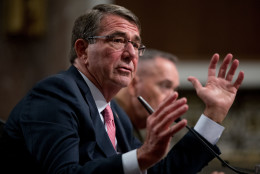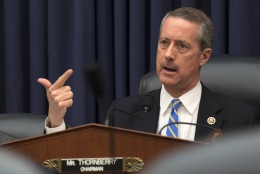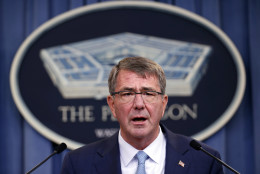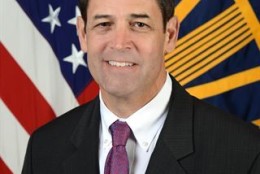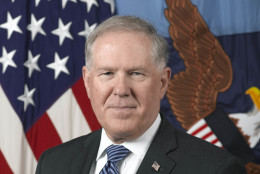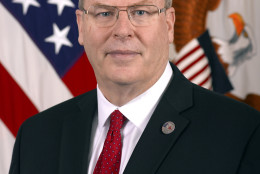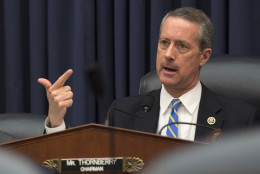Mac Thornberry
-
The Defense Department will ask Congress for another wartime find when lawmakers come back from their fall recess.
September 27, 2016 -
The Army is starting is Rapid Capabilities Office in hopes to speed up acquisitions of top priorities.
August 31, 2016 -
House Armed Services Chairman Mac Thornberry says the Defense Department is already spending $6 billion it hasn't budgeted for in 2017.
July 25, 2016 -
The leader of the Strategic Capabilities Office says acquisition can be bettered through looser requirements.
July 13, 2016 -
The United States is hiring contractors to maintain aircraft in Afghanistan to keep the number of deployed troops lower.
July 06, 2016 -
Transgender service members may now serve openly and will be able to receive medical care relating to transgender issues.
June 30, 2016 -
The Defense Department is still searching for a solid answer on how it will respond to a cyber attack on U.S. infrastructure.
June 23, 2016 -
Secretary of Defense Ash Carter takes umbrage with two specific provisions in the 2017 defense authorization bills.
May 18, 2016 -
Frank Kendall, the Pentagon’s acquisition chief, said Tuesday that he’s comfortable with a package of procurement reforms the House Armed Services Committee passed two weeks ago, largely because the final bill took a step back from strict language that would have required DoD to use modular open architectures on all of its major weapons systems.
May 11, 2016 -
DoD is trying to make sure its chosen strategy is easily picked up by the next presidential administration.
May 02, 2016 -
Matthew Fay, a foreign and defense policy analyst at the Niskanen Center, a libertarian think tank. tells Pentagon Solutions how proposed reforms to the Defense acquisition process are missing the target.
May 02, 2016 -
The 2017 defense authorization bill now has a provision requiring women to sign up for selective service.
April 28, 2016 -
Defense Secretary Ash Carter called the House proposal "deeply troubling," saying it would pay for additional troops and pay boosts at the expense of long-term military readiness and budget stability.
April 28, 2016 -
The House Armed Services Committee is proposing to leave some funding on the table and deal with it in April.
April 21, 2016 -
Rep. Mac Thornberry's (R-Texas) next round of Defense reform focuses on open architectures, cutting duplicate oversight
March 16, 2016

